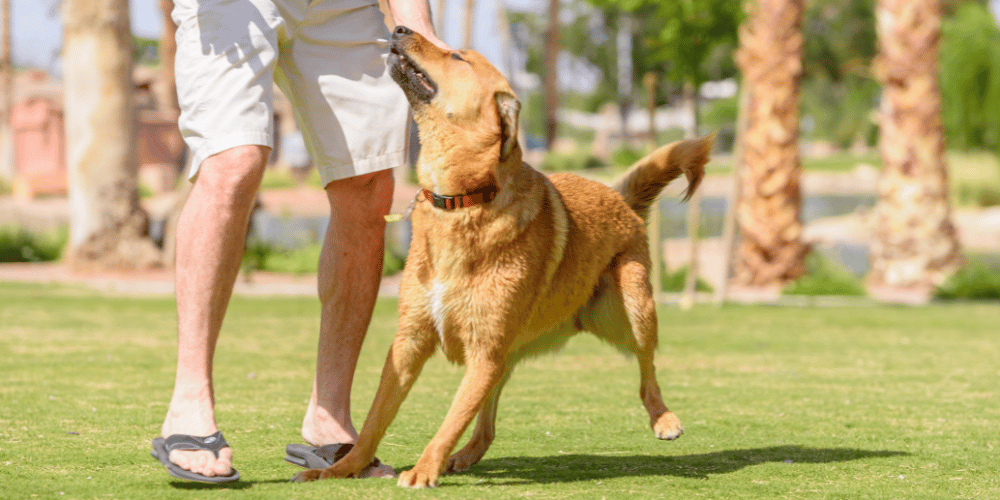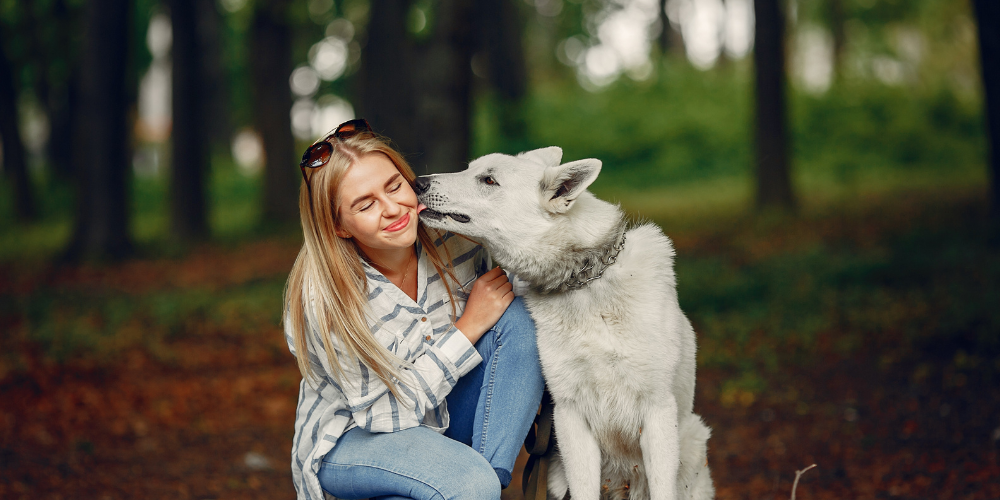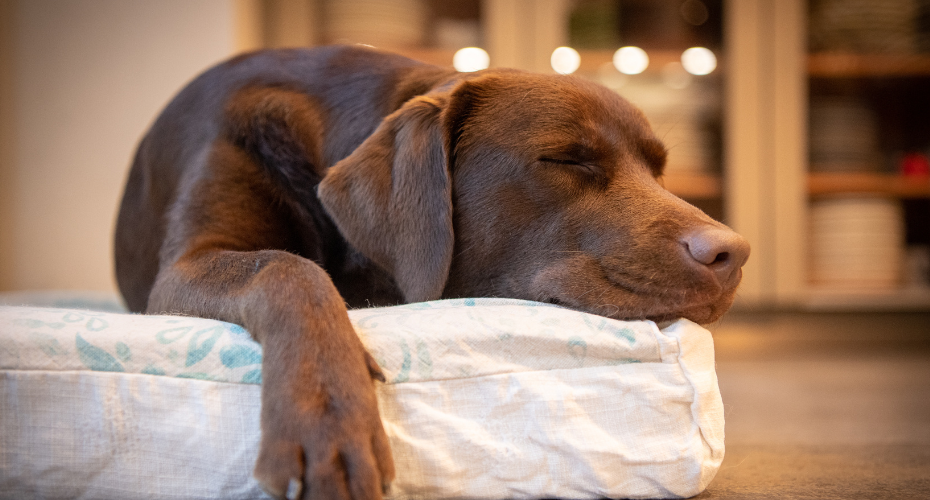
Concerned by your fur-friends snoring? Dogs sometimes snore and just like people, it can be quite irritating having to lie awake all night listening to it. Here we explain the 5 main reasons your dog is probably snoring, along with some tips and tricks to help curb their snoring ways.
Sleeping Position
Like humans, how your dog sleeps can determine whether they snore (or not). Does your dog sleep on their back? If so, they have a high chance of snoring.
Approximately 5-10% of dogs sleep with their belly up, and it’s a position that’s associated with snoring in both dogs and humans.
While lying on their back, the base of their tongue can fall into the throat, blocking air from getting into their passageways, making it uncomfortable to breathe properly.
Possible Solutions:
- Attempt to alter your dog’s sleeping posture or their dog bed or dog bedding. Buy your dog bed online at Vet Products Direct
- Giving your dog a pillow may help as elevating their head can help to reduce snoring.

Their Breed
Some breeds are more susceptible than others when it comes to restricted airflow and breathing problems. Dogs with short noses or flat faces (brachycephalic breeds) such as Bulldogs, Pugs, and Boston Terriers are more prone to snoring than other dogs due to their shortened air passages.
Frequent airway obstructions can be caused by their upper respiratory anatomy, which is abnormally short. This difference in anatomy makes them snoremore than other breeds.
If your dog is one of these breeds, it is likely that it will always snore. You should keep a close eye on their breathing, and if you notice any sudden changes or if they seem to have any difficulty breathing, consult your veterinarian.
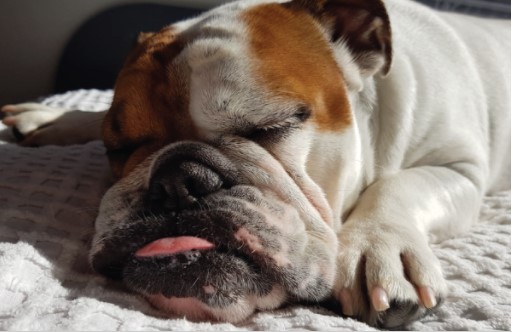
Secondhand Smoke
Thinking about smoking? Just like with humans, secondhand smoke can cause respiratory issues and snoring in dogs by irritating their lungs and airways. Secondhand smoke can damage your dog’s respiratory system, leading to asthma, bronchitis, and snoring.
Possible Solutions:
- If possible, don't smoke in the house.
- Make sure your fur-friend isn’t around when you take a smoke break and wash your hands thoroughly after smoking.
Weight
Being overweight is one of the common causes for snoring in humans, and can contribute to dogs snoring too. Extra weight means extra tissue, and any extra tissue around the nose and throat can narrow their airway, leading to restricted airflow and snoring.
Possible Solutions:
- Exercise your dog regularly to help them maintain an ideal weight.
- Don't overfeed them and follow the manufacturers recommendations on food serving sizes
- Only feed them nutritious pet food that is designed especially for them.
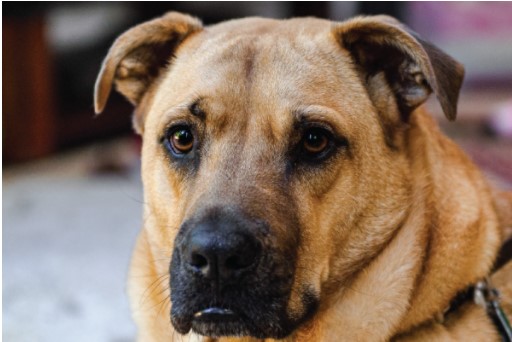
Allergies
If you have allergies you know how badly congested you can get, and how difficult it can be to breathe through your nose. Just like humans, dogs can have allergies that flare up and cause airway restriction and congestion. Allergens can also cause mucus buildup and when combined with airway restriction, this often leads to snoring.
Possible Solutions:
- If you can, check with your vet to find out what your pet is allergic to and eliminate the allergen.
- Vacuum regularly, especially in the areas where your pet frequents.
- Time your walks outside when traffic or pollen levels are low to avoid a flare up.
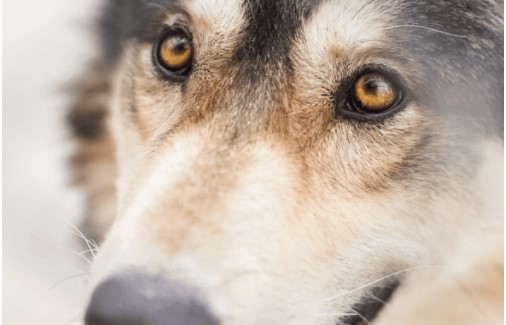
Just remember that snoring is a symptom, not an illness! If your dog is experiencing interrupted sleep or suddenly starts snoring, make sure you have them checked out by your veterinarian to rule out any underlying medical issues. However, if you know your pup is simply the snoring type, we hope you've learned something new!
